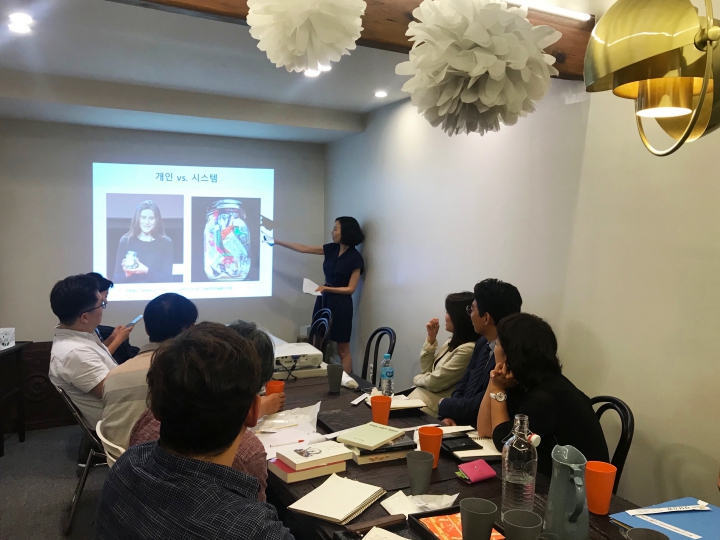We are one of the countless number of species that exist on our planet. However, we have forgotten our position in the universe as one of the many lifeforms that flourish one small planet in the infinite universe. Our audacity and ignorance has placed Earth in danger, and we have forgotten our precious dream that is the co-existence of all lifeforms.
This leads to the question, what kind of existence should we lead?
That is the answer we are searching for.
The Academic Society on Visions of Ecozoic Era aims to place into perspective the origin of humanity and context of human existence, and to realize the Ecozoic Era in which the all lifeforms on Earth co-exist on the planet in harmony. It seeks alternatives for future society models and principles through integral approaches to science and humanities. Consisted of scholars of humanities, sociology and other various fields, it holds monthly book seminars and special lectures by experts from related fields.
- 2018-12-06
- ㆍ
- 626

| 첨부파일 |
|



